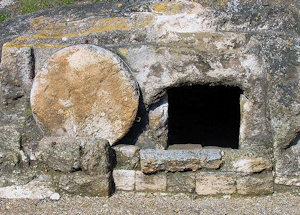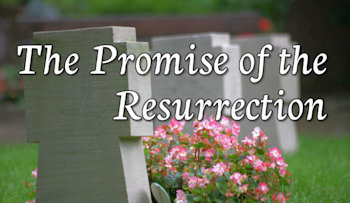This was a rather difficult article to write, because there are so many Christians with opposing opinions. Serious debates covering this topic produce anxiety, and many lay people show signs of agitation discussing this subject. I know, because I’ve seen, heard, and been involved with it all. I’ve been called sacrilegious, profane, and anti-Christian in my opinions and even, once, someone implied that I am a minister of the devil — “Exactly what kind of minister are you, anyway?” a lady once asked. That event seems a bit humorous, now, but at the time it was rather distressing.
I am not your typical Christian minister and, well to be honest, I admit being rather weird — after all, I am called an outlaw student of the Bible. For more than twenty years, I’ve had long hair in a braided ponytail (until just a few months ago) and sported an earring in my left ear (and still do). When someone asks me my opinion about matters concerning the Bible, I tell them what I think, regardless of popular opinion. My personal appearance and my search for biblical truth have gotten me in some trouble, but I am not intimidated by this society and its stereotypical outlook. I am a Christian and proud of it. I am worried about what God may think of me, but no longer worried about what this world thinks. (See an article on just that topic, listed under References & Notes.)1
 Don’t get me wrong, I try my best to be kind, joyful, patient, and express the other fruits of the spirit, as mentioned in Galatians 5:22-23, but I will tell people what I think and it may not necessarily be what they want to hear. I have a desire to share knowledge, if people are willing to hear it, but I must admit that the knowledge isn’t mine. I’ve never thought that I was smart enough to figure out this stuff on my own. It is only through sincere prayer to God — expressing my desire for deeper truth — that he has blessed me with what little I do know. And besides blessing me with the guidance to learn about him, he has also blessed me with the skill to write about it during these sunset years of my life.
Don’t get me wrong, I try my best to be kind, joyful, patient, and express the other fruits of the spirit, as mentioned in Galatians 5:22-23, but I will tell people what I think and it may not necessarily be what they want to hear. I have a desire to share knowledge, if people are willing to hear it, but I must admit that the knowledge isn’t mine. I’ve never thought that I was smart enough to figure out this stuff on my own. It is only through sincere prayer to God — expressing my desire for deeper truth — that he has blessed me with what little I do know. And besides blessing me with the guidance to learn about him, he has also blessed me with the skill to write about it during these sunset years of my life.
I pray that God will bless you, too. Please keep a suggestion from 2 Timothy in mind as guidance in all your Christian belief decisions. “For the time is coming when people will not put up with sound doctrine, but having itching ears, they will accumulate for themselves teachers to suit their own desires,” (2 Timothy 4:2, NRSV).2
Another fine suggestion to consider is what the Jews in Berea did. “These Jews were more open-minded than those in Thessalonica, for they eagerly received the message, examining the scriptures carefully every day to see if these things were so,” (Acts 17:11, NET). And yes, please apply the same attitudes to what I say, too. As the end of this age closes, God’s enemies are working frantically to keep truth from the masses and only those who study and pray for truth will receive it.
So, with all my overblown oratory out of the way, we will now get on with the Bible study on God’s promise of a bodily resurrection to the eternal life we humans have lost. Along with that is the fringe benefit of a restitution of all the perfect things on earth as originally gifted to humankind in the garden in Eden. Some of this material was previously covered in an article3 or two and I have added much more. I will not preach a sermon here, but merely present my thoughts, Bible scripture, and academic references for consideration. I suggest my readers use their own free will to accept or reject, some or all, of what they read. Comments, of course, are welcome.
Where did this resurrection idea come from?
 Adam and Eve were crafted to live forever, but they did not choose wisely in the Garden of Eden and lost their superpower of immortality along with their spiritual connection with God. It was then that they learned that choices came with consequences, both good and bad. These rewards and punishments of individuals are matters of concern only in this current world, not the next one, for by then we will have learned there is only one correct way for life.
Adam and Eve were crafted to live forever, but they did not choose wisely in the Garden of Eden and lost their superpower of immortality along with their spiritual connection with God. It was then that they learned that choices came with consequences, both good and bad. These rewards and punishments of individuals are matters of concern only in this current world, not the next one, for by then we will have learned there is only one correct way for life.
Although forever in the background of God’s plans, this idea of a future life was not always evident to humankind; it evolved over time as human history unfolded. It appeared slowly as the realization of immortality grew through the unfolding narrative in the Bible. The form this idea of immortality took, as pieces of the puzzle began to connect, was in the possibility of a bodily resurrection. And finally in the New Testament, the complete picture of this puzzle emerges showing a promising future of the continuation of human life after death.4 God’s plan was to instruct his people in righteousness, through their own trial and error and have them choose the right path, because they want to do so, not because they are forced to do so. We are now in this final process.
Sometimes answers must wait for a proper time, before they can be completely understood and put into action. That is the case with the truth of the resurrection. Early in humankind’s history, many nations surrounding the Israelites already taught immortality, but it was mostly rejected by God’s people, because of the interwoven pagan practices forbidden as being against God’s laws. For instance, Persia taught bodily resurrection and Egypt developed an elaborate doctrine of individual judgment at death. Because of the forbidden pagan influences and associated magic practices, the prophets disregarded most ideas of immortality doctrine at that time.
Some people say there is nothing in the Hebrew scriptures about a resurrection, but that is not true. Although rare, Old Testament references to the resurrection doctrine are evident, just few in number. There are some slight inferences (Psalm 17:15; 16:11; 49:15; 73:24), and some more exact statements (Job 14:13–15; 19:25–29), but even those can be argued point-by-point.5 The best examples are in the books of Isaiah and Daniel.
 “Your dead shall live, their corpses shall rise. O dwellers in the dust, awake and sing for joy! For your dew is a radiant dew, and the earth will give birth to those long dead,” (Isaiah 26:19).
“Your dead shall live, their corpses shall rise. O dwellers in the dust, awake and sing for joy! For your dew is a radiant dew, and the earth will give birth to those long dead,” (Isaiah 26:19).
“Many of those who sleep in the dust of the earth shall awake, some to everlasting life, and some to shame and everlasting contempt,” (Daniel 12:2).
Progress in knowledge and belief increased and by New Testament times, although one sect of Judaism, the Sadducees,6 still persisted in their denial of a bodily resurrection, others did believe in it. Because of the Greek influences of philosophy and principles of logic and reasoning, the Pharisees believed in immortality, as did the Essenes. Some sources reference the ideas as a ‘soul migration’, but ‘spirit migration’ would be more descriptive, as there is much confusion between the soul and the spirit.
‘Soul’ is the person or creature, but ‘spirit’ is that special attribute, given only to humans by God, that returns to him after our death. The Bible says the soul dies with its human body, “the soul who sins shall die,” (Ezekiel 18:4b, ESV),7 but also says that upon death “the dust returns to the earth as it was, and the spirit returns to God who gave it,” (Ecclesiastes 12:7, ESV). This does suggest that the soul and spirit are two different things.
A biblical scholar, Carl Schultz, wrote, “Man returns to the ground from whence he came. While the body returns to dust, the spirit returns to God. Minimally, the spirit can be seen as the breath of life — the animation of the body provided by God. Man has no control over the departure of the spirit. God gave and he has the power to remove the spirit . . . While the body [soul] is mortal, the spirit is immortal.”8 (For more on this difference in terminology, see a special article on this subject, listed in References & Notes at the end of this article.)9
What do we learn from Jesus’ time on earth?
As we grow in becoming Christlike, we change the spirit within our bodies (not ‘spirit’ as in direct opposition to ‘material’), but our spiritual connection to God which will project in our outward expression. The spirit within us changes, just like the appearance of a grain of wheat after first being sown is changed after growing to maturity. It will be similar after resurrection — we will grow and mature our spiritual selves within our bodies, not transition into a spirit realm.10
Paul, the apostle, was talking about this kind of change, a change of spirit within our own bodies, when he said “If there is a physical body, there is also a spiritual body,” (1 Corinthians 15:44b). We were born with a physical body, and as we become more like Jesus, we develop our inward spiritual selves. To obtain a heavenly spirit, like that of Jesus, we must become Christlike. But when we are raised from the dead, our new bodies will be just as physical as they were before we died, but our reanimated spirit will continue to change and grow.
When Jesus was raised from the dead, it was into a new body, and he hung around for a while and proved that fact. Previous to that, Jesus showed us a fine example of bodily resurrection when his friend Lazarus died. The body of Lazarus was already decaying, so it must have been a new body coming out of that grave. To demonstrate this point, I believe, was one of the reasons our Lord purposely delayed for four days in getting to the tomb. There is a wonderful and emotional Christian song, titled ‘Four Days Late’, about Lazarus being resurrected after all hope is gone. See References & Notes at the end of this article for a video link.11 Selected lyrics are below.
 The death watch was over, Buried four days
The death watch was over, Buried four days
Somebody said He’ll soon be here, the Lord’s on His way
Martha ran to Him and then she cried
Lord if you had been here You could have healed him
He’d still be alive
But You’re four days late And all hope is gone
Lord we don’t understand why you’ve waited so long
But His way is God’s way Not yours or mine
When He’s four days late
He’s still on time
A secret: some people will never die!
The Apostle Paul reveals that not all will die before the resurrection, but those still alive will be changed. This is when the “in the twinkling of an eye” quote comes into play and the supposed rapture occurs. Read closely and you will see that there is nothing said about exchanging our physical body for an angelic one and floating off to heaven. The key points in the scripture below are these words: “our dying bodies must be transformed into bodies [not angels or spirit beings] that will never die.” I like the way the New Living Translation states it so simply.
“But let me reveal to you a wonderful secret. We will not all die, but we will all be transformed! It will happen in a moment, in the blink of an eye, when the last trumpet is blown. For when the trumpet sounds, those who have died will be raised to live forever. And we who are living will also be transformed. For our dying bodies must be transformed into bodies that will never die; our mortal bodies must be transformed into immortal bodies.
“Then, when our dying bodies have been transformed into bodies that will never die, this Scripture will be fulfilled: ‘Death is swallowed up in victory. O death, where is your victory? O death, where is your sting?’ For sin is the sting that results in death, and the law gives sin its power. But thank God! He gives us victory over sin and death through our Lord Jesus Christ,” (1 Corinthians 15:51-57, NLT).
We will have our bodies transformed into everlasting bodies, just as those first arranged for us in God’s garden in Eden. That was the original plan, before humans messed up. We were designed to live forever in human bodies upon an earth built for us. We were to be earth’s keepers and take care of this whole planet. We were to commune directly with God and lovingly protect his creations. The original plan will be reintroduced with the resurrection and restitution of all things, as promised.
But, isn’t Jesus preparing a place for us in heaven?
“In my Father’s house there are many dwelling places. If it were not so, would I have told you that I go to prepare a place for you? And if I go and prepare a place for you, I will come again and will take you to myself, so that where I am, there you may be also, (John 14:2-3).
Don’t these words, spoken by Jesus, prove we are changed into angels and taken to a spiritual life in heaven? Many people believe so, but keep in mind that “Jesus said nothing about the nature of the place where he was going.”12 And from that scripture, many Christians make other assumptions, too — such as understanding the Father’s house only as a dwelling, rather than as a family or dynasty. They also narrowly define ‘place’ as an ornate abode, a mansion, or a palace, instead of a position, an office, or a role.13
 “They gloss over the fact that Jesus says directly in this context that he would ‘come again’. Where? To earth! He then says he will receive the saints to himself. If he remains on earth to rule the nations, then the saints will rule with him on the earth! Many scriptures show very plainly that God’s Kingdom will be on the earth (Psalm 2:6-8; Jeremiah 23:5; Daniel 2:35, 44-45; 7:27; Zechariah 9:9-10; Revelation 11:15).”14 So, this scripture says nothing about us going to heaven, although most people assume it does. Jesus is not referring to a particular location for us to live in heaven; he is referring to a place being “prepared” while he is in heaven. Let’s consider two scripture quotes.
“They gloss over the fact that Jesus says directly in this context that he would ‘come again’. Where? To earth! He then says he will receive the saints to himself. If he remains on earth to rule the nations, then the saints will rule with him on the earth! Many scriptures show very plainly that God’s Kingdom will be on the earth (Psalm 2:6-8; Jeremiah 23:5; Daniel 2:35, 44-45; 7:27; Zechariah 9:9-10; Revelation 11:15).”14 So, this scripture says nothing about us going to heaven, although most people assume it does. Jesus is not referring to a particular location for us to live in heaven; he is referring to a place being “prepared” while he is in heaven. Let’s consider two scripture quotes.
Matthew 25:34 says, “Then the king will say to those at his right hand, ‘Come, you that are blessed by my Father, inherit the kingdom prepared for you from the foundation of the world.’” And Revelation 21:2-3 says, “And I saw the holy city, the new Jerusalem, coming down out of heaven from God, prepared as a bride adorned for her husband; And I heard a loud voice from the throne saying, ‘See, the home of God is among mortals [Greek for ‘mortal’ means a human being].15 He will dwell with them as their God; they will be his peoples, and God himself will be with them.’”
The Jerusalem Temple in Jesus’ time was symbolic of the Kingdom of God and the city of a new Jerusalem. So, Jesus was preparing a place for Christians in the Kingdom and in the new Jerusalem. The Kingdom of God/New Jerusalem will be on earth. It does not say we will go to heaven, but that Jesus, as promised, will return to earth. Keep in mind that part of the Lord’s Prayer, when Jesus said: “Your kingdom come. Your will be done, on earth as it is in heaven” (Matthew 6:10). And remember, Jesus also said: “Blessed are the meek, for they will inherit the earth” (Matthew 5:5).
Jesus is returning to earth where Christians will help him rule over the nations. The place being prepared is not an apartment in which to live, but a position or place within the government of the Kingdom of God. The position we will hold depends upon many things: how we have been faithful and served God, how we have overcome the evil we faced, how honorably we have lived our lives and treated others, and much, much more.
 One thing we can be sure about, is that until Jesus’ new Kingdom arrives upon his return to this world, we will all die and our bodies will return to the dust of the earth, and our spirit will be returned to God for safe keeping. “The dust returns to the earth as it was, and the spirit returns to God who gave it,” (Ecclesiastes 12:7, ESV).
One thing we can be sure about, is that until Jesus’ new Kingdom arrives upon his return to this world, we will all die and our bodies will return to the dust of the earth, and our spirit will be returned to God for safe keeping. “The dust returns to the earth as it was, and the spirit returns to God who gave it,” (Ecclesiastes 12:7, ESV).
No human, however, goes to heaven to live in any form, for the Bible tells us that no one has gone to heaven except Jesus. “No one has ascended into heaven except the one who descended from heaven, the Son of Man” (John 3:13). In the promised resurrection, our awakened spirit of life will be united with a new perfect body here on an earth under Jesus’ rulership. It is here that we will live; isn’t that wonderful?
The Bible teaches us that our physical bodies, including its spiritual attributes, will one day live upon a perfect earth, as it was in God’s garden in Eden. That is his plan — a restoration of all things lost. And speaking of Jesus, the Bible says, “for he must remain in heaven until the time for the final restoration of all things, as God promised long ago through his holy prophets,” (Acts 3:21, NLT). It will be then that God will be with us and “he will wipe away every tear from . . . [our] eyes, and death shall be no more, neither shall there be mourning, nor crying, nor pain anymore, for the former things have passed away,” (Revelation 21:4).
![]() Copyright © 2020, Dr. Ray Hermann
Copyright © 2020, Dr. Ray Hermann
OutlawBibleStudent.org
→ Leave comments at the end, after ‘References & Notes’.
You can see our basic rules for comments by clicking “The Fine Print” on the top menu bar.
Reference & Notes
- Hermann, Ray, “I am Not Ashamed of the Gospel of Jesus Christ — Are You?” (The Outlaw Bible Student, OBS, 12 October 2019), https://outlawbiblestudent.org/i-am-not-ashamed-of-the-gospel-of-jesus-christ-are-you/
- Unless otherwise noted, scripture quotations are from the New Revised Standard Version Bible (NRSV), ©1989 the Division of Christian Education of the National Council of the Churches of Christ in the United States of America. Used by permission. All rights reserved.
- Hermann, Ray, “Do we go to Heaven when we die? Do people see Heaven during a Near Death Experience?” (The Outlaw Bible Student, OBS, 4 October 2019), https://outlawbiblestudent.org/do-we-go-to-heaven-when-we-die-do-people-see-heaven-during-a-near-death-experience/
- Easton, Burton Scott, “Resurrection,” (Eds.) James Orr, et al., The International Standard Bible Encyclopaedia, (Chicago: The Howard-Severance Company, 1915), vol. 4, p. 2563.
- Ibid.
- There were four parties, or sects, within Judaism during the first century, each with their specific beliefs that evolved over time: Sadducees, Pharisees, Essenes, and Zealots.
- Strong’s Hebrew #5315: נֶֶפֶש nephesh; a breathing creature.
Strong, James, The New Strong’s Dictionary of Hebrew and Greek Words, (Nashville, TN: Thomas Nelson, 1996). - Schultz, Carl, “Ecclesiastes,” in Evangelical Commentary on the Bible, Baker Reference Library, (Grand Rapids, MI: Baker Book House, 1995), vol. 3, pp. 450–451.
- Hermann, Ray, “What is the Soul: is it a Spirit or something else?” (The Outlaw Bible Student, OBS, 26 February 2019), https://outlawbiblestudent.org/what-is-the-soul-is-it-a-spirit-or-something-else/
- Easton,Burton Scott, “Resurrection,” (Eds.) James Orr et al., The International Standard Bible Encyclopaedia, (Chicago: The Howard-Severance Company, 1915), vol. 4, p. 2564.
- “Four Days Late,” Artist: Karen Peck & New River; Venue: live at Saenger Performing Arts Center, New Orleans, (Licensed: UMG on behalf of Gaither Music Group; Broadcast Music Inc., 2002) – VIDEO: https://youtu.be/OaMC6uU27Ds
- Blum, Edwin A., “John,” in The Bible Knowledge Commentary: An Exposition of the Scriptures, (Eds.) J. F. Walvoord and R. B. Zuck, (Wheaton, IL: Victor Books, 1985), vol. 2, p. 322.
- Ritenbaugh, Richad T., “Caught Up in the Rapture,” in Forerunner Commentary, (Bible Tools, retrieved 29 September 2019), https://www.bibletools.org/index.cfm/fuseaction/Bible.show/sVerseID/26672/eVerseID/26672
- Ibid.
- ἄνθρωπος (Greek): a human being.
Souter, Alexander, A Pocket Lexicon to the Greek New Testament, (Oxford: Clarendon Press, 1917), pp. 23–24.


You stated, “No human, however, goes to heaven to live in any form, for the Bible tells us that no one has gone to heaven except Jesus. Please comment on Jesus’s statement to the believing thief on the cross, Luke 23:43 KJV: And Jesus said unto him, “Verily I say unto thee, Today shalt thou be with me in paradise.”
Also, (Gen 5:21–24) “Enoch walked with God: and he was no more; for God took him”. Also, (2 Kings 2) “The time had come for the Lord to take Elijah up to heaven in a whirlwind.”
Also, do not true Christians know that angels are of a different creative order than humans? Are you being facetious to say that anyone believes that we change into angels at death? Also, am I wrong to assume you believe in “soul sleep”?
It is appreciated that you left your comment and questions. Thank you.
About Jesus’ statement at Luke 23:43, this statement is still being debated among academics. Since there are no punctuation marks in the original written language, the translator places them where they think they should be placed. As an example, here is an English translation that places the comma AFTER the word ‘today’ and it changes the whole meaning of Jesus’ quote. “Truly I tell you today, you shall be with Me in paradise.” (The Scriptures translation, Institute for Scripture Research, South Africa.)
For Genesis 5:21-24, I ask where did God take him? It doesn’t say heaven. And for 2 Kings 2:1, heaven or heavens can mean the sky, which is where most whirlwinds (tornadoes) take things.
You mentioned ‘soul sleep’ – you did not define this term. Many people use the ‘soul’ and the ‘spirit’ interchangeably, however, it is not the soul that returns to God at death, it is the spirit. Any reference otherwise, is a mistranslation.
For more about the soul and the spirit, see the article: “What is the Soul: is it a Spirit or something else?” https://outlawbiblestudent.org/what-is-the-soul-is-it-a-spirit-or-something-else/